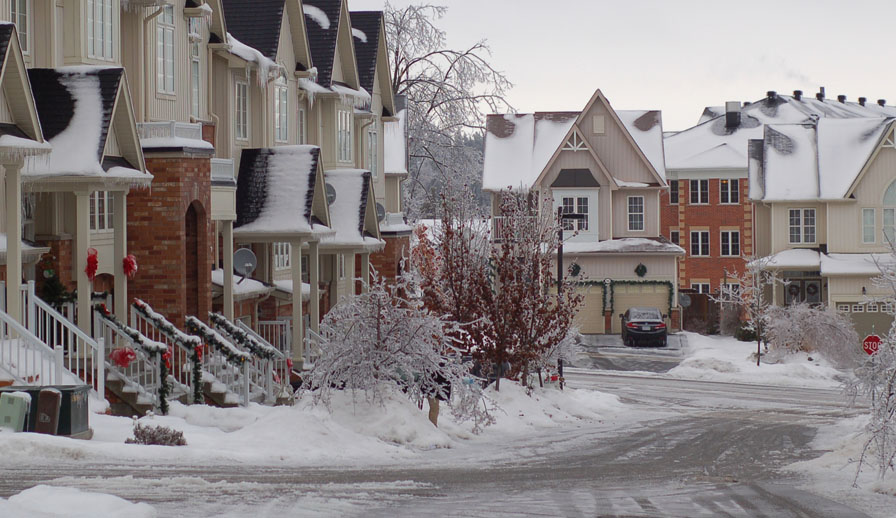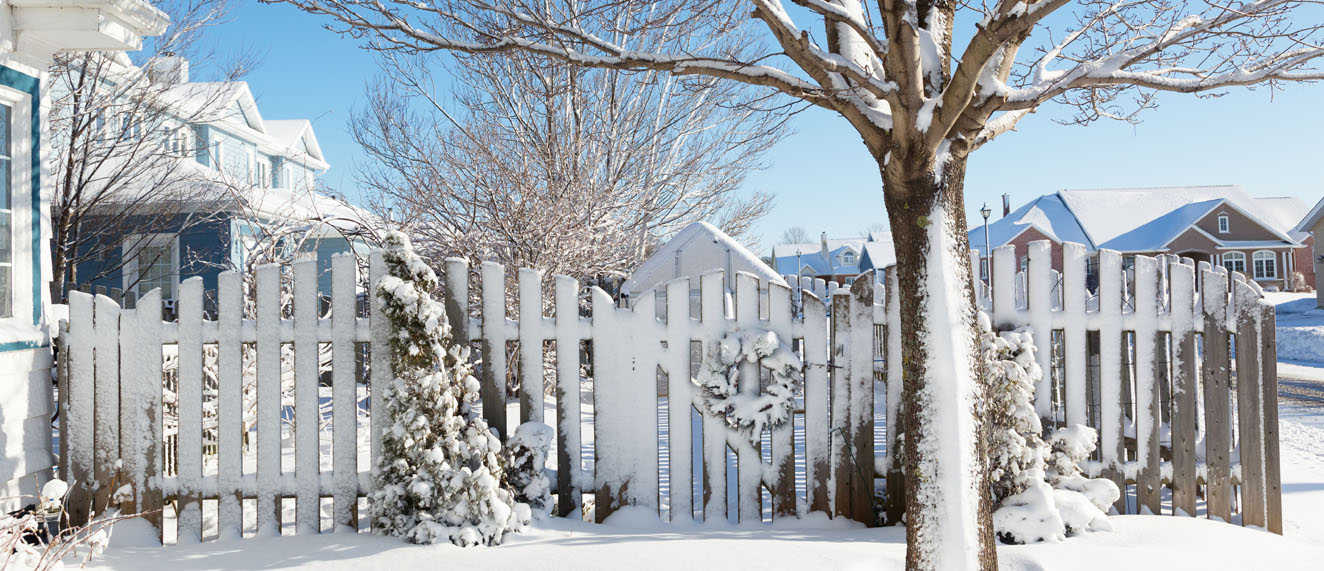Struggling to find content to share on your social media pages?
Stop scrolling through Instagram and Facebook. All you need is REALTOR.ca.
Our consumer lifestyle blog, Living Room, offers content including home improvement, market trends, DIY projects, neighbourhood guides and profiles on unique homes. Living Room publishes exciting new content four times a week (with unique French content for our Francophone fans).
While CREA Café is curated specifically to help your business grow and thrive, Living Room content is perfect to share with your clients.
Owned and operated by the Canadian Real Estate Association (CREA), REALTOR.ca is the No. 1 real estate platform in Canada (Comscore, 2020) with MLS® System listings from across the country.
Share this blog with your clients and follow REALTOR.ca on Twitter, Instagram and Pinterest.
You can read the original blog here.
The poet Robert Frost once famously said, “Good fences make good neighbours,” but this only holds true if that fence is in the right place. Most homeowners don’t actually know where their property begins and ends, says Chris Kamarianakis, CEO of ProtectYourBoundaries.ca.
Most buyers do their due diligence by hiring a building inspector and getting a notary or lawyer to do a title search. But Kamarianakis says it’s also important to get accurate dimensions of the property you’re about to purchase so that you’re aware of the rights and limitations associated with your land.
Here’s what you need to understand about property lines and boundary rights.

Location, location, location: it goes beyond the street address
While it’s smart to purchase a home in a desirable neighbourhood, it’s essential to know exactly what you’re investing in, says Kamarianakis.
“The problem is, people think a property line is wherever the fence is, but our research in Ontario has shown that 99.7% of fences are not on the property line,” says Kamarianakis. “The property line says, ‘this is where my property ends and somebody else’s begins’. People spend all this time looking for the house itself, but they forget what they’re actually buying is land that happens to have a building on it.”
Knowledge is power
According to the Professional Land Surveyors of Canada, whether you’re selling or buying a house, you should know precisely where all the major features—such as buildings, driveways, pools, fences, sheds, and walkways—are located in relation to the property’s boundaries. A land survey will also tell you if there are any rights of way, utilities, or easements that determine how you can use your property.
Luckily, it’s fairly easy to obtain an accurate land survey that confirms the property line. The sellers might even have one. Kamarianakis’ company offers a comprehensive online database of existing survey plans across Ontario, which are available for $200 to $500. Other provinces offer similar options, as well.
If a current survey doesn’t exist, a licensed professional land surveyor can create one for about $3,000 or more, depending on the location and size of the property, says Kamarianakis.
Regulations vary from province to province
Depending on where you live, selling a home might require you to have an updated land survey. For example, Alberta requires a Real Property Report, while Quebec has a Certificate of Location. In Ontario, there’s no legal requirement to survey the land or to confirm where the property line is, notes Kamarianakis. However, it’s always good to know exactly what you’re selling or buying.
“Buyers and sellers get themselves into trouble when buying and selling an asset without a full investigation as to where this land asset starts and ends,” he says.
In a hot seller’s market, some buyers might be reluctant to request a boundary inspection as a condition, because it can take several weeks to get one done, and they fear the seller taking another offer, adds Kamarianakis.
“The key on the buying side is to do your due diligence before you put the bid in,” he suggests.

The rights and wrongs of a right of way
A right of way or an easement is a legal right to use part of someone else’s property for a specific reason, such as a shared driveway, or a lane leading to the backyard, explains Kamarianakis.
“On the selling side as a listing agent or seller, not disclosing an easement that affects your property, or on the buying side, not investigating to see if there are easements that affect the property you’re bidding on can cause untold levels of misery after the fact,” he says.
For example, Kamarianakis warns never to assume you can park your car on a shared driveway, put in a pool, build an extension, or plan to tear a house down and rebuild without first confirming the property line.
When selling your home, including a survey plan in your listing can help ensure you’ve disclosed everything about the extent of title and avoid trailing liability after the sale, says Kamarianakis.
“When buying a home, a survey helps ensure that your intended use of land can actually be satisfied, and that you won’t end up with a nasty surprise where the property’s narrower than you thought,” he adds.
Finally, if you’re planning exterior renovations, surveys enable you to understand what you can and cannot legally do with your property.
Figuring out where your ownership ends and the city’s begins
Before you plant a new garden or enlarge your parking pad, be aware that properties include a section that belongs to the city, says Kamarianakis.
“Usually, the city owns the boulevard, the sidewalk, and several feet from the sidewalk into your front lawn,” he explains. “A general rule of thumb is if you can find your water shutoff valve, that’s just inside city property. A survey plan will tell you where that is relative to everything else around it.”
You can find a licensed land surveyor through the Professional Surveyors of Canada.
Because your property is likely the single biggest investment you’ll make, knowing what you’re buying is a key step in the process. Be sure to work with a REALTOR® to gather all the information you need to make the right decision for you.




